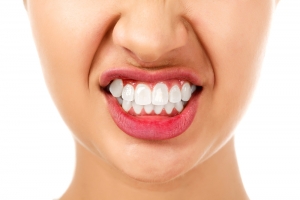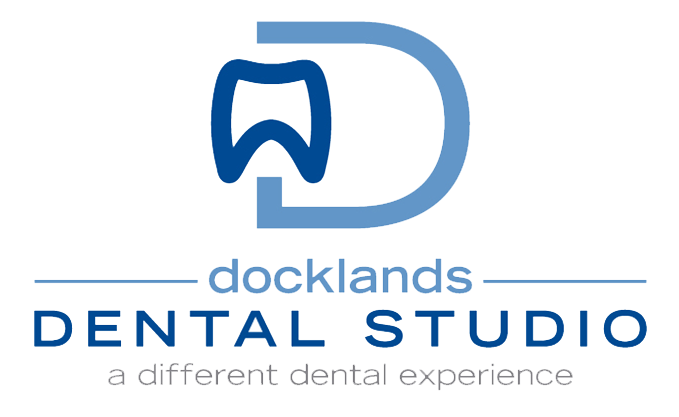If you’ve ever woken slowly to find a tightness in your jaw, or your mouth firmly clamped shut—you might benefit from a night guard. Teeth grinding or jaw clenching is known as bruxism, and it can damage your teeth. Many people are unaware they suffer from this condition, as it often happens solely when you are asleep. If your partner is a deep sleeper, he or she may never hear the grinding sound of your molars rubbing together during the night.
If you suspect you might be a clencher or a grinder, visit one of our friendly dentists at Docklands Dental Studio. We are easily accessible via trams from Melbourne CBD. Take Tram Number 11 or 48 from Collins Street, and get off at Collins Landing (Stop D17). Call us today at (03) 9021-9487 or book an appointment online.
Symptoms of Bruxism
Since teeth grinding does have a tendency to get worse when you are under stress, you may not experience it all the time. But even if you only grind your teeth infrequently, the wear may add up over the years. As we age, our enamel naturally becomes more brittle anyway, so the damage may not be seen until several years down the road.
If you experience any of the following symptoms, have a dentist examine your teeth for signs of bruxism:
- pain in your jaw muscles
- pain in tooth roots
- waking with a headache
- headaches, especially in the temples
- a gritty feeling in the mouth upon waking
- a tendency to clench your jaw or gnash your teeth when awake
Risks of Bruxism
Symptoms of teeth grinding may vary, but the long-term outcome is always bad for your teeth. You may end up with:
- cracked teeth
- worn-down teeth
- loosened dental work
- loosened teeth, and dental ligaments
There are many factors that can lead to cracked and worn-down teeth, of course. Identifying and controlling bruxism is a great way to make sure your teeth stay strong and better able to resist a crack when you bite down on something too hard, for example.
Causes of Teeth Grinding
The precise cause of bruxism is not known. However, there may be an inherited factor, as up to 50% of sufferers have a family member who also grinds or clenches. There is also evidence that it may be neurological, or an involuntary function of the central nervous system. Certain medications are known to contribute to bruxism, as is psychological stress.
Bruxism sufferers may also have temporomandibular joint (TMJ) disorder, a condition in which a misaligned jaw leads to headaches, neck pain, and clicking or popping when you open and close your jaw.
Protect Your Teeth with Night Guards!
The best way to deal with bruxism is with a customised night guard from Docklands Dental Studio. You may be tempted to buy a less expensive DIY night guard, but these do not afford the same level of protection.
When you form an impression on a boil-and-bite night guard, there is a great margin for error. If you bite too hard, you will not get enough cushioning to prevent teeth from touching. If you bite too soft, the guard will be uncomfortable in your mouth and you may spit it out in your sleep. The same goes for night guards made by companies that allow you to send in a home-made dental impression.
Your dentist is the only one who can guarantee a night guard is made from the most comfortable materials and provide your teeth with the maximum protection.
Come and see one of our friendly and professional dentists at Docklands Dental Studio. If you are in Port Melbourne or South Wharf, you can easily reach our dental practice via the Web Bridge (on foot or by bike) or Wurundjeri Way (by car). Call us today at (03) 9021-9487 or book an appointment online.
